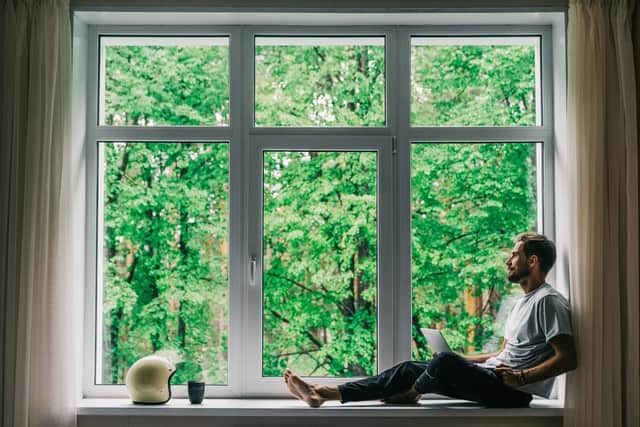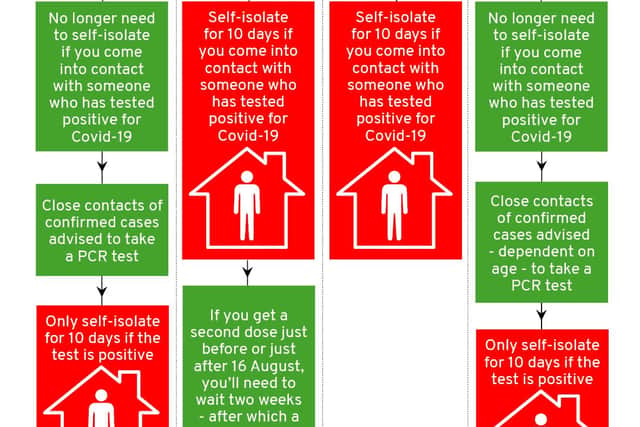Do we need to self isolate after 16 August? Self isolation rules and changes for double vaccinated explained
and live on Freeview channel 276
From Monday 16 August, people who are fully vaccinated and those aged under 18 will no longer have to self isolate after coming into contact with someone who has tested positive for Covid.
With 75% of people having received both doses of the vaccine, the majority of adults will no longer need to self-isolate if they are contacts.
Advertisement
Hide AdAdvertisement
Hide AdSo where in the UK do the rules apply, what should double vaccinated people do if they come into contact with someone who has tested positive, and what are the restrictions for people who have only had one dose of the vaccine?
Here’s what you need to know.


What are the rules from 16 August?
In England, the requirement to self-isolate if you are contacted by NHS Test and Trace will remain in place until 16 August.
It will then be relaxed for those who are fully vaccinated and for under-18s.
After 16 August, if someone is identified as a close contact of a positive Covid case, NHS Test and Trace will ask if they are fully vaccinated.


Advertisement
Hide AdAdvertisement
Hide AdIf they are, then they will be advised to take one PCR test as soon as possible to make sure they haven't been infected. As long as that test is negative, and they don't develop symptoms, then they won't need to take further PCR tests.
However, anyone who tests positive or develops symptoms will still need to self-isolate, regardless of their vaccination status.
Those who have a second Covid vaccine dose close to 16 August will have to wait two weeks after the jab before following the new rules. This is in order to allow the vaccination to take full effect.
What are the rules in Scotland, Wales and Northern Ireland?
In Scotland, if you think you have Covid symptoms you should self-isolate immediately and take a PCR test. If you do not have symptoms, you can order rapid lateral flow tests for regular testing at home.
Advertisement
Hide AdAdvertisement
Hide AdCurrently, NHS Covid contact tracers will call to tell you if you’re a close contact, or you will be notified via the Protect Scotland app.
In that case, you need to self-isolate for 10 days, even if your test comes back negative.
In Wales, you should self-isolate for 10 days if you have any symptoms or have tested positive for Covid, but do not have any symptoms.
If you do not have any symptoms but have tested positive, you must self-isolate for at least 10 days, starting from the day after you took the test.
Advertisement
Hide AdAdvertisement
Hide AdYou can stop self-isolating after 10 days even if you still have a cough or loss or change to your sense of smell or taste. These can last for a couple of weeks.
In Northern Ireland, if you have symptoms of or have been diagnosed with Covid-19 you must self-isolate at home for the required amount of time.
If you have been confirmed as a close contact of someone with Covid you are also required to self-isolate for up to 10 days.